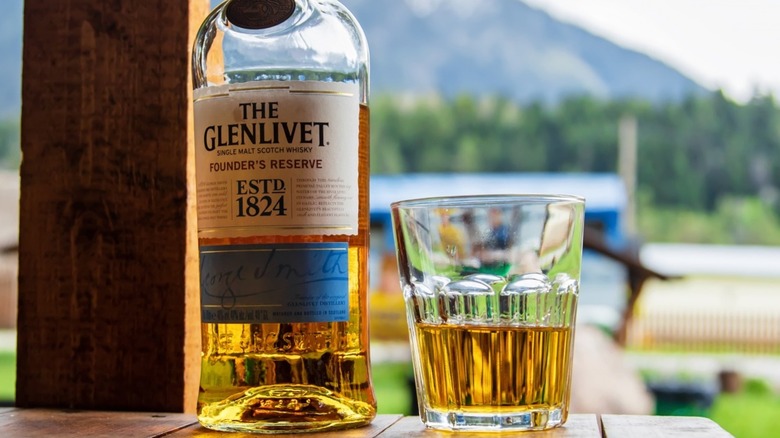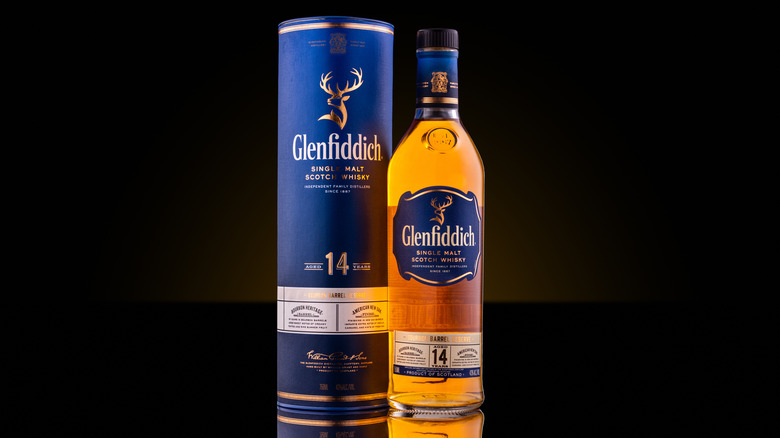The Country European Whisky Must Come From To Have 'Glen' In Its Name
If you're someone who likes to enjoy the occasional beer, cocktail, or glass of wine, you're likely aware of the countless types of alcoholic beverages on the market. But something you might not know is that certain beverages are classified differently depending on where and how they're made. One of these popular distinctions comes with champagne, which only has one main difference from other sparkling wines — it must be made and bottled within 100 miles of the Champagne region of France, per Wine Country.
You might be familiar with bourbon, but do you know what it is? It's a type of whisky that bears its name for two main reasons: how it's made and how it's aged. According to Food & Wine, a whisky can only be classified as bourbon if it's made with at least 51% corn. Plus, it must be aged in new charred oak barrels and be at least 80 proof (40% alcohol by volume).
There are plenty of whisky varieties around the world, and several must legally meet certain requirements in order to be named as such. If you prefer a whisky with "Glen" in the name, then you might already know that it can only legally be made in one country.
'Glen' whisky must be made in Scotland
According to European Union courts, if a whisky has "Glen" in its name, then it must come from Scotland. Though the ruling doesn't technically apply to the United States and Canada, the use of the term "Glen" for whisky made outside of Scotland might, at the very least, have the Scottish Whisky Association filing a suit.
Food & Wine reported in February 2022 that the SWA won a nine-year legal battle over the use of the term "Glen" by a German whisky company. The SWA said in a statement that its interpretation of the term "Glen" suggested "Scottish indications of origin." Since the German whisky company did not produce the alcohol in Scotland, the SWA fought for nearly a decade to have the German company wipe "Glen" from its name.
The court ruled in the SWA's favor after the association proved that all Scotch whiskies sold in European Union supermarkets were exclusively from Scotland. While the same rule would not apply in the United States and Canada, Germany's Waldhorn Distillery was ultimately required to change its label. The bottom line? If you're considering launching a whisky brand, you might want to avoid naming it "Glen" — unless you're planning to make it in Scotland.

